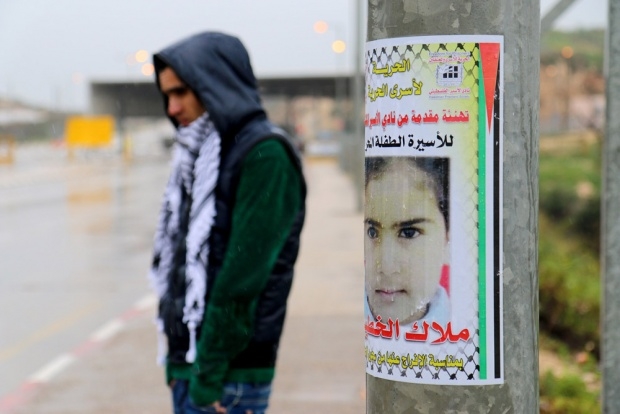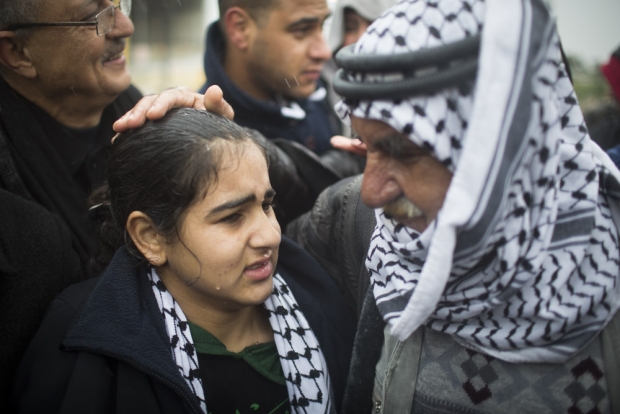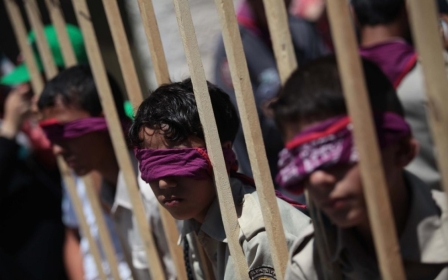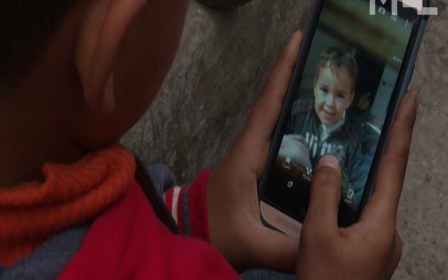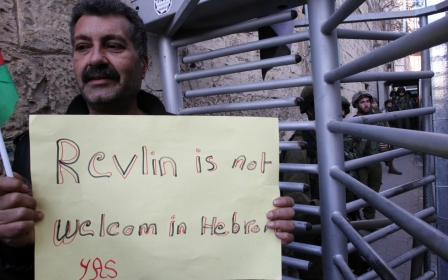Israel releases Palestinian schoolgirl after 6 weeks in prison
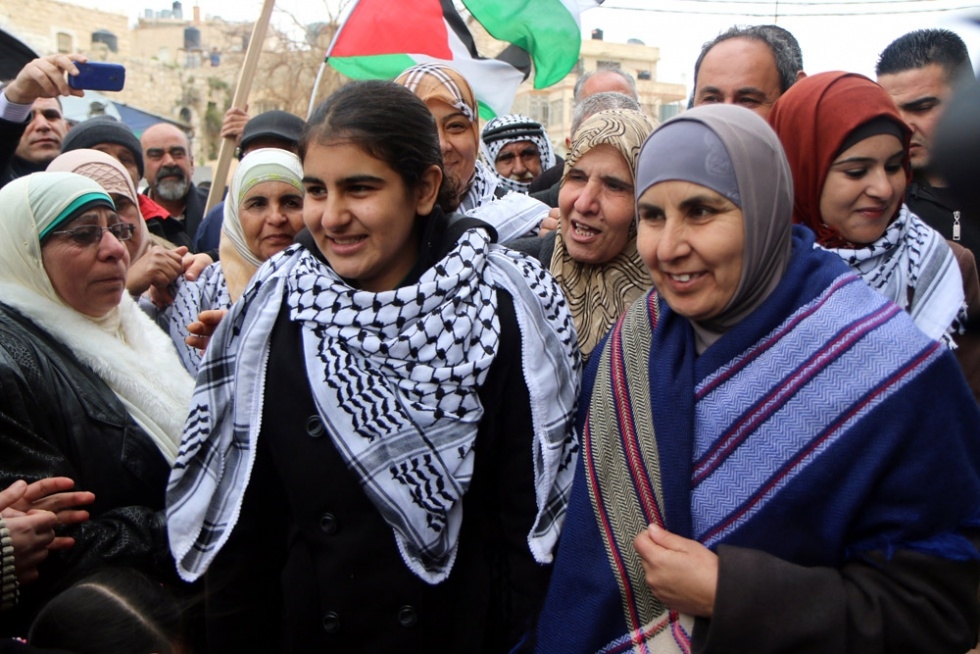
Malak al-Khatib, a 14-year-old Palestinian schoolgirl, arrested by the Israeli army for allegedly throwing stones was released Friday after serving out a six-week stint in prison.
Crowds of well-wishers, including Ministry of Prisoner Affairs Issa Qaraqe, flocked to the streets to greet the teenager following her release. According to Palestinian officials Khatib was the youngest girl to be detained and sentenced by the Israeli authorities, with her case sparking widespread public outrage.
“My experience was very hard,” she told local Palestinian media as her family hugged her. “But I endured because that’s what we Palestinians have to do.”
“My message to the rest of the prisoners is for them to maintain their steadfastness, and not to bow down to the Israelis.”
Khatib was arrested by the Israeli army on her way back home from school on 31 December, and charged with throwing rocks at Israeli settlers near her village of Beitin, close to Ramallah. She was also found to have a knife in her possession.
The Israeli authorities said that Khatib confessed to wanting to stab Israeli security personnel in case she was arrested. However, her father dismissed her confession as being extracted under pressure and distress.
“A 14-year-old girl surrounded by Israeli soldiers will admit to anything,” said Ali al-Khatib. “She would admit to holding a nuclear weapon if she were accused.”
Under Israeli military law, the maximum sentence for rock throwing is 20 years in prison.
Upon her arrest, Malak was interrogated without legal representation and her family were denied access. Her parents were prohibited from speaking to her during the court session. Under international law and the UN Convention of the Rights of the Child – which Israel has signed and ratified - all minors are allowed to have a parent or guardian present during interrogation.
The Israeli military court sentenced her on 22 January to a 6,000 Israeli shekel fine ($1,500) and two months in prison, but the Palestine Prisoners’ Club, an independent human rights group, said that two weeks were later deducted from her sentence due to her age.
Joint Israeli-Palestinian monitoring group Addameer, estimates that there are currently 156 Palestinians minors under the age of 17 in Israeli prisons, although other Palestinian groups have put this figure higher.
The vast majority are boys, but four girls were in the system at the time of Malak’s incarceration, with her being the youngest.
According to rights group Defense for Children International Palestine, Israel arrests between 500-700 Palestinian minors every year. In 93 percent of cases, the group says, children are deprived of legal counsel, have no right to be accompanied by a parent during their interrogation, and are rarely informed of their rights, especially their right against self-incrimination.
The groups also asserts that 75 percent of detainees suffer from some form of physical violence between their period of arrest and interrogation, with half of them strip searched. Almost all children confess to accusations levelled at them by the Israelis whether or not they are guilty of any demeanor in order to stop the abuse, the group has said.
Malak was held in the HaSharon prison in Israel, known for its poor and dank conditions.
New MEE newsletter: Jerusalem Dispatch
Sign up to get the latest insights and analysis on Israel-Palestine, alongside Turkey Unpacked and other MEE newsletters
Middle East Eye delivers independent and unrivalled coverage and analysis of the Middle East, North Africa and beyond. To learn more about republishing this content and the associated fees, please fill out this form. More about MEE can be found here.


